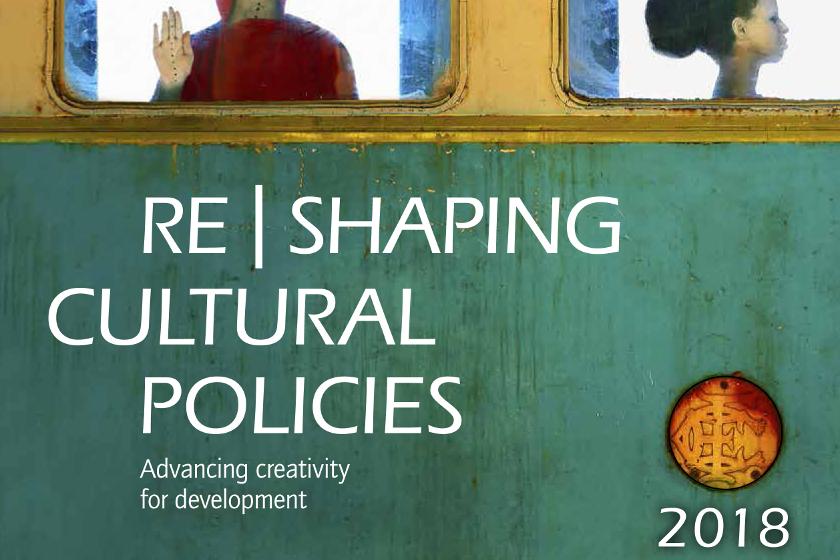UNESCO Cultural Diversity Report launch reflects CISAC’s concerns on creators’ rights

CISAC’s interventions on behalf of creators have been prominently highlighted in key end-of year events at UNESCO, led by the 2018 Global Report, Re|Shaping Cultural Policies and a strongly-worded declaration by scores of advocacy groups known as Civil Society Organisations (CSO). The Report also includes a call to action on audiovisual creators’ rights from filmmaker, screenwriter and CISAC Vice President Jia Zhang-ke.
The pressures faced by creators and cultural industries, especially in the digital era, were explored in depth during the plenary session of the Intergovernmental Committee of the Convention on the Protection and Promotion of the Diversity of Cultural Expressions. A strong call for fair remuneration for creators was given by CSO organisations, representing NGOs accredited as observers at UNESCO for the Convention on Cultural Diversity.
“The giant Internet conglomerates contribute nothing to local culture, bring marginalisation of diverse voices, and concentration of languages and actors. The digital shift has helped transform access to and consumption of creative content in the digital world. However, it has also had a significant negative impact on creators and artists, particularly as a consequence of the economic imbalance. Revenues are increasingly flowing to the large digital services rather than to the creators of the content. While consumption of creative content is seeing explosive growth, little is returned to the creators.
We need fair remuneration for artists and creators, and fair and appropriate remuneration for cultural producers. We need open technical standards, transparency and data to measure the impact on the diversity of cultural expressions, from those who now control the Internet. We need an effective strategy to begin to redress these imbalances. We need appropriate regulations to ensure the public interest is protected. And we have made a number of recommendations for you on these topics.“
The UNESCO report, launched during the meeting of the Intergovernmental Committee, cites CISAC data from the 2017 CISAC Global Collections Report and examines, among other issues, disparities in cultural trade. It examines the implementation of the UNESCO 2005 Convention on the Protection and Promotion of the Diversity of Cultural Expressions.
Filmmaker, screenwriter and CISAC Vice President Jia Zhang-ke has lent his voice in an introduction in the new UNESCO report. He declared: “The 2005 Convention was a landmark for creators across the world. It protects our rights, guarantees the freedom to create and recognizes the economic importance of the creative industries”.
The UNESCO report includes some key data points highlighting the need for stronger government support for culture, especially in the developing world. Notably, UNESCO reports:
- Between 2005 and 2014, total global exports of cultural goods from developing countries (except China and India) grew from 15% to 26.%. Yet the share of LDCs did not improve, with only 0.5% share of total global exports of cultural goods in 2005 and 2014. Nevertheless, the report mentions important progress in certain regions, such as Africa, in improving the situation for creators and the creative sector.
- Official development assistance (ODA) for culture has fallen 45% in one decade from US$465.9 million in 2005 to US$257 million in 2015.
These events are the latest in CISAC’s developing cooperation with UNESCO. In June, both organisations, along with UNESCO Goodwill Ambassador and CISAC President Jean-Michel Jarre, united creators, ambassadors and copyright experts for a conference on the transfer of value and the challenges it imposes upon creative industries.
